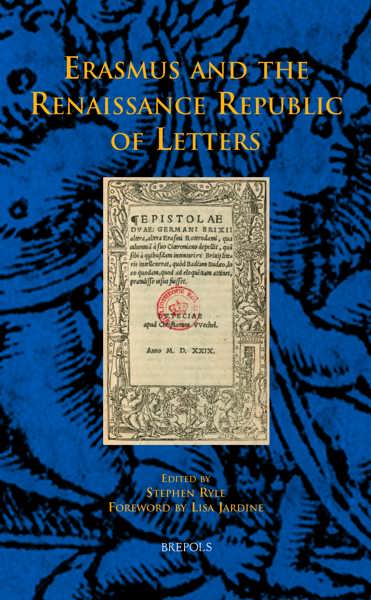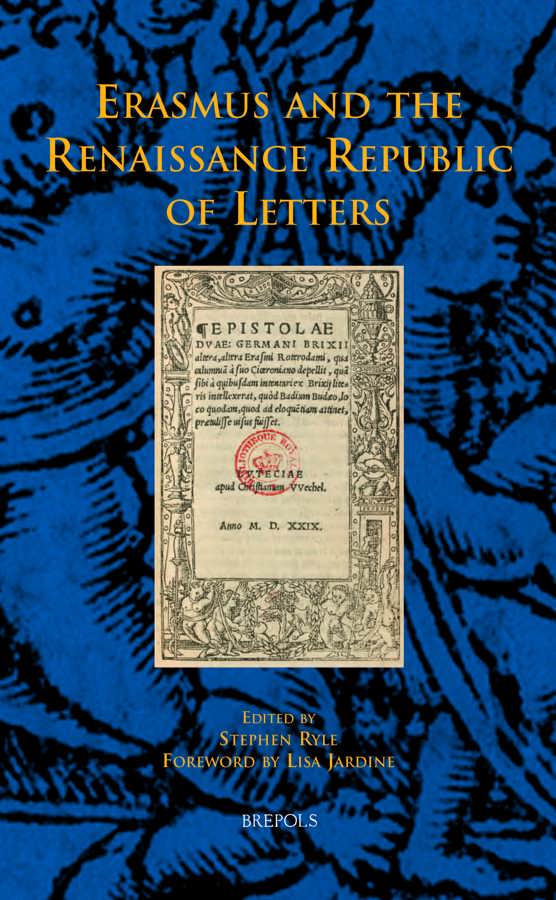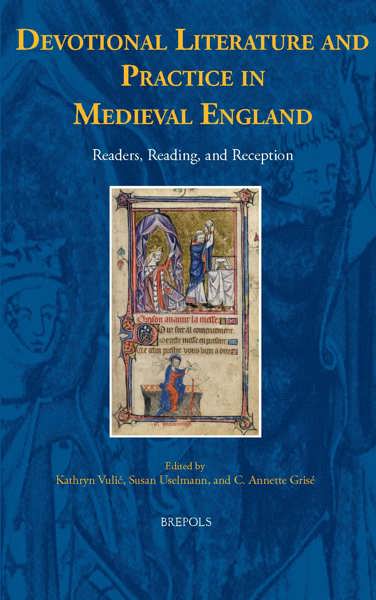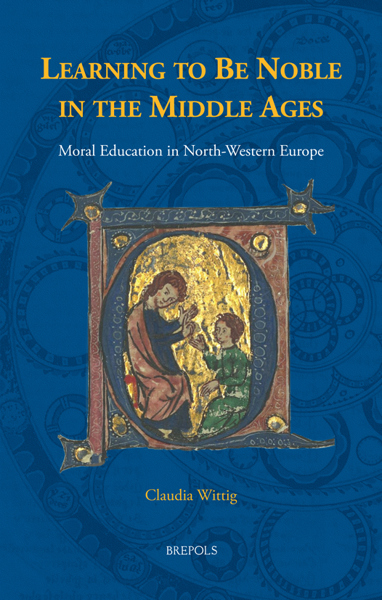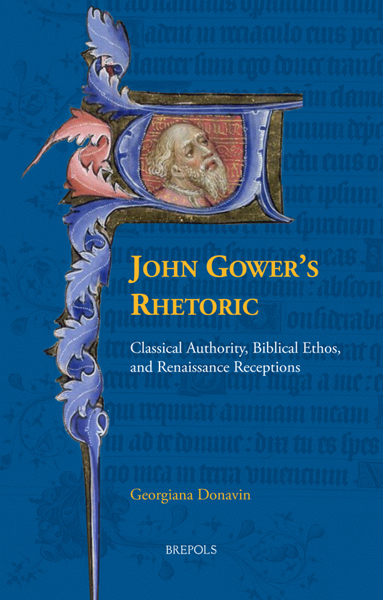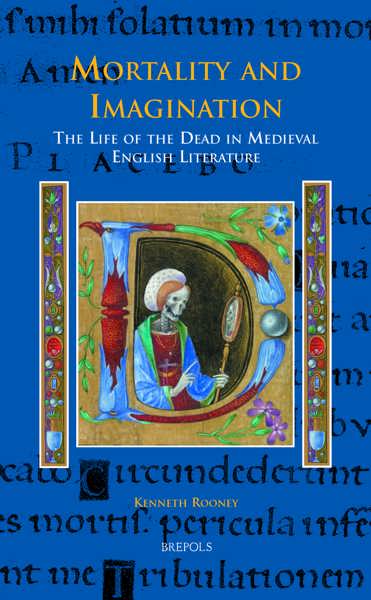
Erasmus and the Renaissance Republic of Letters
Stephen Ryle (ed)
- Pages: xviii + 474 p.
- Size:156 x 234 mm
- Illustrations:5 b/w
- Language(s):English, French, Italian
- Publication Year:2014
- € 130,00 EXCL. VAT RETAIL PRICE
- ISBN: 978-2-503-53030-7
- Hardback
- Available
- € 130,00 EXCL. VAT RETAIL PRICE
- ISBN: 978-2-503-56460-9
- E-book
- Available
"Taken together, these essays present an excellent sampling of contemporary scholarship on Erasmus, and highlight the variety of approaches and interpretations of contemporary scholars." (Mark Crane, in: Renaissance and Reformation, 37.3, Summer 2014, p. 311-313)
"In all of the essays, readers can appreciate Erasmus in conversation with distant and more recent predecessors, contemporaries, and descendants, as a source of illumination into his own context as well as an invitation to stimulating scholarship in our own time." (Laurel Carrington, in: The Catholic Historical Review, 101.3, 2015, p. 637-639)
"Although eight years have passed between the presentation and publication of these conference papers, they are worth the wait. With exacting care, Stephen Ryle has edited nearly 500 pages with footnotes, bibliographies, and an index that lists each citation of Erasmus’s letters." (Anne M. O'Donnell, in: Renaissance Quarterly, 68.3, 2015, p. 978-980)
"It is a strong collection of papers and should provoke much further scholarship." (Andrew A. Chibi, in: Sixteenth Century Journal, XLVI/2, 2015, p. 428-429)
“Ryle’s volume is of the altitude of some of the exceptional collections of Erasmus essays (…)” (Willis Goth Regier, in Erasmus Studies, 40, 2020, p. 79)
This volume contains a selection from among the papers delivered at a conference held to mark the centenary of a watershed event in early modern studies: the appearance of Volume I of P. S. Allen’s edition of Erasmus’s letters. Erasmus scholarship has been a growing field since the late twentieth century, owing to the enormous volume and vast intellectual range of his oeuvre and to the reprinting of his works from the 1960s onwards, while Allen’s edition has proved the basis for research for scholars of almost every aspect of Renaissance humanism and the Reformation.
The conference aimed to investigate as many aspects as possible of Erasmus’s literary, educational, rhetorical, and theological activities and of their influence on the emerging Europe of the early modern era. The essays collected here present a wide-ranging overview of the current state of Erasmus scholarship, including a survey of the discoveries of letters to and from Erasmus unknown to Allen, the printing for the first time since 1529 of the opening section of an important letter to him from Germain de Brie, an account of the crucial role played by Ulrich von Hutten in the publication of the dialogue Iulius exclusus e coelis, and several studies of the influence of Erasmian thought on early modern political and theological controversies. With its broad coverage of the current field, the volume will prove indispensable to Erasmus scholars.
Foreword — Lisa Jardine
Introduction — Stephen Ryle
Section I. P. S. Allen and Current Erasmian Scholarship
Supplementunculum Allenianum: le début de l’ep. 2021 retrouvé — Michel Magnien
Supplementa Alleniana: tentative de bilan et perspectives — Christine Bénévent
The Englishing of P. S. Allen — James McConica
Section II. Erasmus and his Contemporaries
Julius, Erasmus, Hutten: A Dialogue in Three Voices — Silvana Seidel Menchi
Erasmus as Biographer of Thomas More and his Family — Clare M. Murphy†
Les Lettres de Dirk Martens, imprimeur d’Érasme — Alexandre Vanautgaerden
The Erasmus-Vives Correspondence — Charles Fantazzi
Erasmus and Capito: the Trajectory of a Friendship — Erika Rummel
La relation entre Érasme et le duc Georges de Saxe au cours des années1520: Réforme de l’Église et engagement théologique — Marie Barral-Baron
Section III. Literature and Philosophy in the Renaissance Republic of Letters
Polidoro Virgili, Erasmo e la Respublica litteraria — Romano Ruggeri
Erasmus and Plagiarism — Ari Wesseling †
Indus elephantus haud curat culicem: Érasme et Dolet (1528–38) — Catherine Langlois-Pézeret
Concorde et polémique dans les Colloques d’Érasme — Béatrice Périgot †
The Erasmian Republic of Letters and its Discontents — Hanan Yoran
Enjeux de la traduction du grec en latin dans la Respublica litteraria autour d’Érasme — Isabelle Diu
Two Models of Humanist Letter-writing: Desiderius Erasmus and Justus Lipsius — Jeanine De Landtsheer
Section IV. Erasmus and his Spiritual Legacy
The Shaping of a Gospel: Further Reflections on the Paraphrase on Luke — Jane E. Phillips
Italian Humanist Predecessors of Erasmus’s Encomium matrimonii of 1518 — Letizia Panizza
Tranquillitas animi: Erasmus and the Quest for Spiritual Reassurance, 1533–43 — Dominic Baker -Smith
Joseph Hall, Thomas Fuller, and the Erasmian Via Media in Early Stuart England — Gregor y Dodds
Section V. Erasmus and Literary Tradition
‘Nothing if not Critical’: G. E. B. Saintsbury, Erasmus, and the History of (English) Literature — Mark Vessey
List of Contributors
General Index
Index of the works of Erasmus
